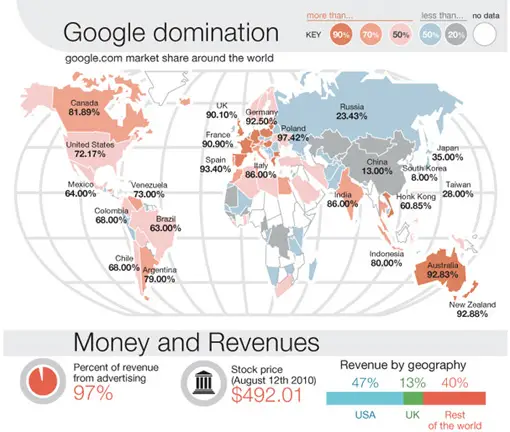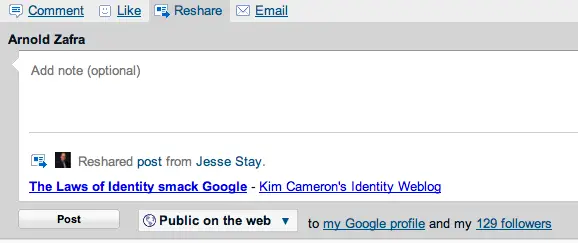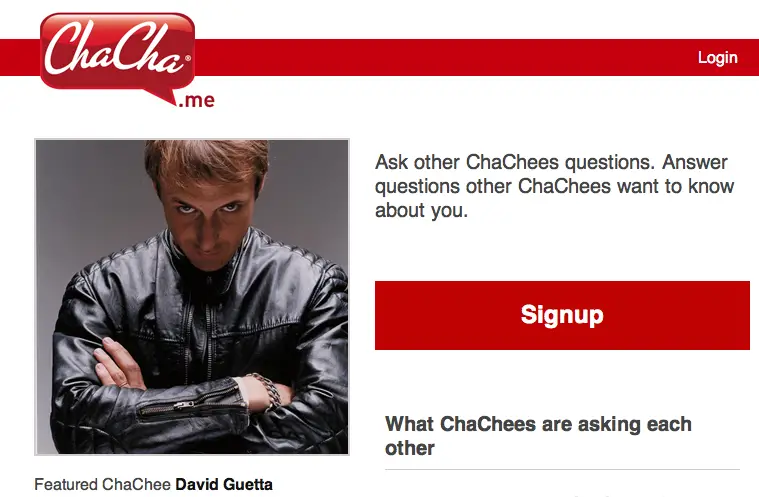Our colleagues over at The Blog Herald once more sat down to research the data for another awesome infographic and analysed the history of Google this time. The result was Google History and Timeline. Here’s a preview for our Dailybits readers.
Search Engines
The CIA and Google Team Up to Predict the Future
 Remember the movie Minority Report? Yeah, that was a pretty cool movie, but we all know that it’s “just” science fiction. There is no way that it can happen in real life, right?
Remember the movie Minority Report? Yeah, that was a pretty cool movie, but we all know that it’s “just” science fiction. There is no way that it can happen in real life, right?
Think again. It seems that the Central Intelligence Agency of the United States and Google are planning on creating something that will make the possibility of predicting events as reality. There’s this company called Recorded Future, and this is what they do (from their web site):
1. Scour the Web
We continually scan thousands of news publications, blogs, niche sources, trade publications, government web sites, financial databases and more.2. Extract, rank, and organize
We extract information from text including entities, events, and the time that these events occur. We also measure momentum for each item in our index, as well as sentiment.3. Make it accessible and useful
You can explore the past, present and predicted future of almost anything. Powerful visualization tools allow you to quickly see temporal patterns, or link networks of related information.
In short, the company monitors the information that can be found online – as much of it as they possibly can – using what they call a temporal analytics engine.
How is this different from what Google and other search engines do now? The key is in the linking of information. What the temporal analytics engine does is to find patterns and relationships amongst documents, web sites, files, etc. Related names, entities, and events will be connected via the engine, and people can analyze the data and connections to somehow piece that past together or even predict the future.
Naturally, the project – and the entities involved – has drawn various reactions. There are those that are quite excited about the possibilities, and there are those who are afraid of the potential dangers this kind of technology brings.
Personally, I think that the dangers are definitely there, but that we really can’t stop the CIA from engaging in this kind of activity. We do need control and transparency, and we can only hope that it will be so. You?
3 Internet Pet Peeves and Their Fixes

Considering the time that you probably spend online, you would know that there are a lot of things that can happen out there that get your goat. We all have our pet peeves; some of them we can find fixes for, some we just can’t do anything. And, speaking of these Internet problems and fixes, I read a very interesting and useful list at PC World.
There are too many too mention here, but let me give you the three that are my pet peeves.
Facebook game and apps overload
I love Facebook games – a couple of them, at least; but I know how irritating it can be to see all those feeds when you are NOT interested in them. Hence, I try to limit the things that I publish. If you have friends who can’t help but flood your feed with their Facebook games and apps, though, PC World suggests Facebook Purity, which is part of Firefox’s GreaseMonkey add-on.
Useless search bars in web sites
What use is a search bar embedded in a web site if you can’t get relevant results? This has happened to me countless of times that I have simply stopped using them most of the time. What I have been doing is what PC World suggests: go to your usual search engine and key in site:nameofsite.com “what you’re looking for” instead.
Flash ads automatically blaring out some audio
Imagine browsing the net while at Starbucks or some other place when suddenly, this loud audio emanates from your speakers. Forget that – imagine working late into the night, you’re alone at home, and the same thing happens. I have jumped out of my skin so many times because of this! Here’s the fix from PC World: use FlashMute, which blocks Flash access to your audio. They do have a disclaimer: your anti-virus software might see it as an attack when you download the software. Ignore it.
For the complete list, visit PC World.
Google Buzz Now Has Reshare, Not Rebuzz
For Buzz users, have you wanted to share an interesting buzz that you want to share with your other Google Buzz followers? Are you tired of the copying the buzz and pasting it to a new buzz just to let your followers find it? Google finally gives a solution. Nope, sorry folks its not called “rebuzz” but rather a more correct and dandy tag called “reshare.”
If you’re familiar with Twitter’s “retweet,” well Google Buzz Reshare practically works the same way. You found and interesting Google buzz post from your followers, click on a link, add an annotation or any comment and then hit the button to publish it as a new buzz on your Google buzz account. Yes, in two clicks, Google made its Buzz product more social.
In addition, “resharing” a buzz creates a new buzz that contains link to the original post. And it creates a buzz thread as soon as more followers started resharing the buzz to their followers as well. Now, when two or more Google Buzz users share the same thing to you, the buzz is collapsed to avoid cluttering your Google Buzz inbox. Sounds fair?
On why Google implemented its buzz sharing feature this way, the Official Gmail Blog tells us the following explanations: [Read more…] about Google Buzz Now Has Reshare, Not Rebuzz
ChaCha Adds Social Dimension to its Q&A Service
I’m not really sure whether you have heard or at the most used ChaCha.com, a question and answer service that provides quick, accurate answers to millions of question everyday. Regardless, you might be interested to know that the online Q&A service is adding some social aspects to its service by launching the new ChaCha.me social platform.
The ChaCha.me platform allows you to build a profile. But once your profile is up, practically all those who’ve created their own profiles as well can start asking you various questions. Likewise, you are free to ask questions to them too. It’s like building a social network based on the Q&A format.
To kick off its launch, ChaCha.me is featuring David Guetta who recently won a Grammy Award and currently has two songs on the Billboard Top 50. Guetta will be among the first celebrities who will be featured on ChaCha.me. Once on the featured page, fans can ask questions and hopefully get answers from celebrities.
In addition, ChaCha.me will soon be making its way on mobile platforms, specifically on iPhone and Droid handsets. An SMS functionality is also being planned.
ChaCha’s CEO Steve Jones has this to say about the launch of ChaCha.me:
“One of the most fundamentally appealing qualities of social sites like Twitter and Facebook is the notion that people care about what celebrities and friends are doing and sharing. ChaCha.me provides this forum for users, but also takes it to the next level with intimate Q&A interaction. These ChaCha.me answers may flow into ChaCha’s broad database so that those who are asking for answers from ChaCha will receive, in effect, certified answers directly. For example, ChaCha will now be able to return certain answers about David Guetta, directly from David himself,” said Mr. Jones.
Google Gets Patent for Location-Based Advertising
So last week Facebook won a rather “vague” patent for news feeds. Now, it’s Google’s turn. This time it’s a patent for location based-advertising which if compared with Facebook’s patent is very clear as to what intention Google will use this patent for.
Actually, Google may have set the pattern already when it acquired mobile ad company – AdMob. It is clear that Google wants to dominate the mobile advertising market, what with the recent launch of its Google branded phone, the Nexus One. AdSense on the other hand have implemented mobile ad serving a long time ago.
And now this patent for location in an advertising system, which is actually the emerging business model for most consumer-facing location startups today.
We must also consider Google’s long-standing priority over location-enabled search. In fact, just last week a location filtering option for search was rolled out by Google.
Interestingly, this development has to come amidst the proliferation of location-based mobile applications such FourSquare, Gowalla, Yelp and even Google’s own Buzz in its mobile version. [Read more…] about Google Gets Patent for Location-Based Advertising


